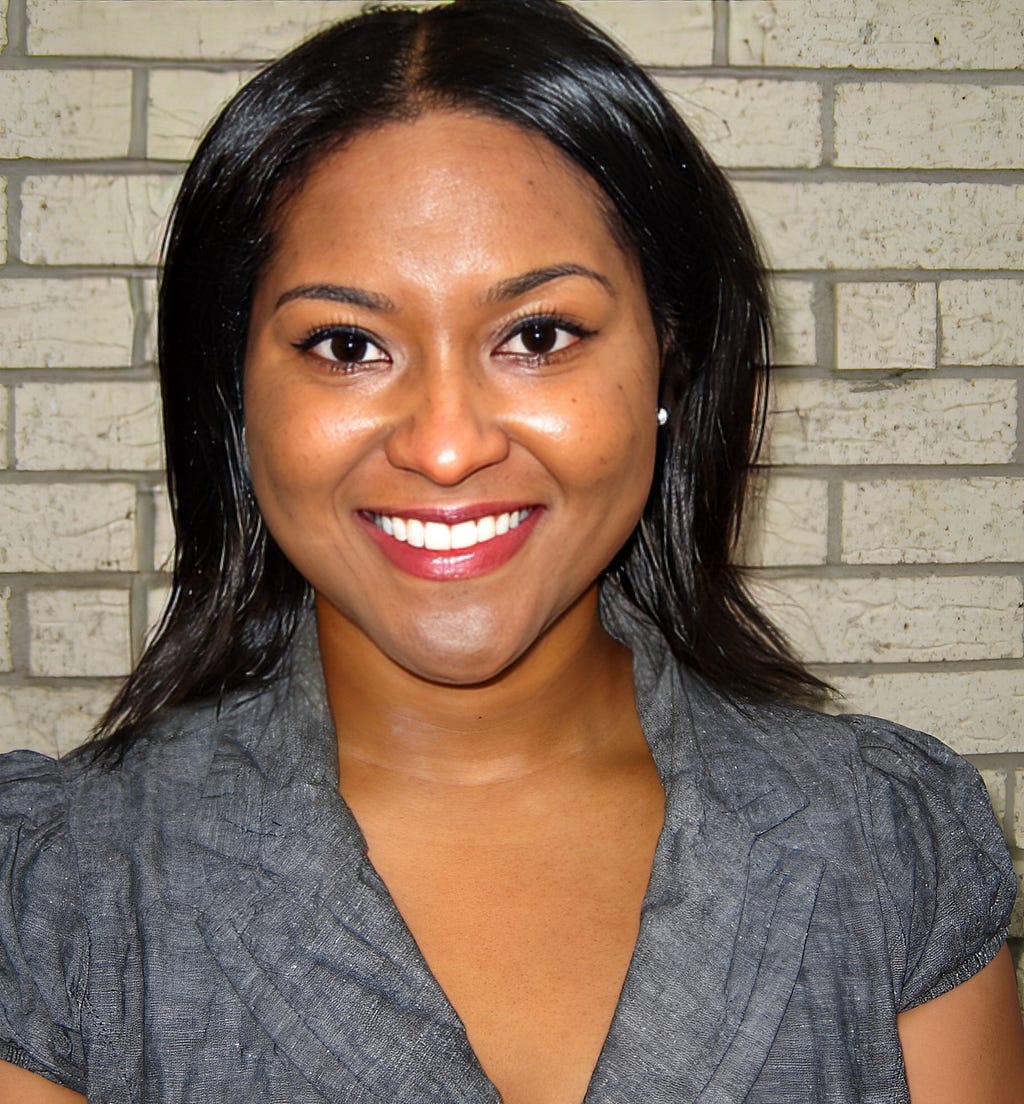
Not all telecommuting jobs allow schedule flexibility. I experienced the extremes of scheduling from the opposite end of the spectrum with my first two teleworking jobs. In the first job, I set my own schedule as a hybrid employee — including which days I’d work from home that week. In my next job, my entire workday was scheduled by someone else, and I couldn’t take off in the afternoon to pick up kids, run errands or go to a doctor’s appointment.
As part of my series about “authors who are making an important social impact”, I had the pleasure of interviewing Dr. Frieda Wiley.
Dr. Frieda Wiley is a pharmacist-turned-freelance medical writer and medical journalist who has written for O, The Oprah Magazine, US News & World Report, Merck, Pfizer, the National Institutes of Health, and numerous other organizations. A long-time telecommuter, she has spent more than eight years researching the effects of telecommuting on mental health. She explains the impact of remote work on mental health and how to protect it in her new book, Telecommuting Psychosis: From Surviving to Thriving While Working in Your Pajama Pants.
Thank you so much for joining us in this interview series! Before we dive into the main focus of our interview, our readers would love to “get to know you” a bit better. Can you tell us a bit about your childhood backstory?
I grew up in a small East Texas town and was a classic nerd and bookworm. I loved reading, writing, and learning in general. While I was an all-around student, I excelled in writing and visual arts.
When you were younger, was there a book that you read that inspired you to take action or changed your life? Can you share a story about that?
My fourth-grade teacher gave me a book called Gonna Bake Me a Rainbow Poem by Peter Sears. The book was a compilation of poems written by children. On the inside of the cover, she’d written a note encouraging me to keep writing and telling I’d be an author one day. I was inspired by the children’s poems in the book as much as her message. That experience has remained with me decades later.
It has been said that our mistakes can be our greatest teachers. Can you share a story about the funniest mistake you made when you were first starting? Can you tell us what lesson you learned from that?
My funniest mistake when I first got started was thinking I could just reach out to magazines I wanted to write for without having a pitch. I’ll admit I got lucky a few times when I was first getting started writing, but that’s generally not how it works — whether you write for magazines or have other business ventures. By pitching magazines, I learned that pitching is a universal art that applies to selling yourself or your idea in any market.
Can you describe how you aim to make a significant social impact with your book?
I originally began writing my book as a form of self-therapy to cope with the stress of being the only remote employee in my department. However, as I continued writing and researching, the book evolved into a mission to let other people working from home know they are not alone and that there is no shame in protecting your mental health.
Can you share with us the most interesting story that you shared in your book?
Many people may think the whole purpose of the book is to show how wonderful working from home can be once you find your groove, but that’s not the case. I also share why telecommuting isn’t for everyone. I share the story of a coworker from my first fully remote experience to help illustrate that. He became a full-time telecommuter many months after I did, but he ultimately chose to go back into the office because he missed the human interaction.
What was the “aha moment” or series of events that made you decide to bring your message to the greater world? Can you share a story about that?
When I first began working from home more than a decade ago, I read every single book, article, and research I could find about working from home. I noticed a void. All the books shared productivity hacks but gave little if any attention to taking care of your physical and mental health. At the time, remote workers did not receive the support or compassion that they experience today. I saw an opportunity to change that.
That said, “telecommuting psychosis” is not an official clinical term. However, I coined the phrase because for two reasons: 1) I needed to a phrase to describe how I felt as a person who became full-time telecommuter unexpectedly in a pre-COVID-19 era, and 2) I found absolutely no official term in studies done on remote workers to describe the entire spectrum of mental health and emotional challenges facing this population of the workforce.
That calling grew stronger in 2020 after millions of people became overnight telecommuters during the COVID-19 pandemic. I knew I needed to use my experiences and research as a platform to help other people.
Without sharing specific names, can you tell us a story about a particular individual who was impacted or helped by your cause?
Several people who have read my book have written to me personally to tell me how their book helped them to find some hacks to stay on task while managing stress. The first person to tell me my book was helpful was actually one of my editors! I was shocked. She told me she began implementing several of my strategies to manage her social health and not let life pass her by.
Are there three things the community/society/politicians can do to help you address the root of the problem you are trying to solve?
- Start by creating a safe space for hybrid workers and full-time telecommuters to come forward and express their challenges.
- Establish a framework of resources available to hybrid workers and full-time telecommuters to get help and feel supported.
- Working groups and advocacy groups should collaborate with politicians to pass legislation to support the experiences of hybrid workers/telecommuters and protect their mental health.
How do you define “Leadership”? Can you explain what you mean or give an example?
To me, leadership means establishing a framework, influencing a culture or thought process, and working to affect change through various actions. Leadership transcends managing or overseeing a team, and there are many ways to be a leader. Honestly, I don’t think of myself as a leader; however, throughout my life, many people have told me I am a natural-born leader because I pursue what impassions me regardless of what others may think.
What are your “5 things I wish someone told me when I first started” and why? Please share a story or example for each.
- There is a huge difference between being a hybrid worker who works from home a 1–2 days a week versus working from home every single day. Because my first telecommuting job was a hybrid role, I assumed there’d be very little difference in working from home 1–2 days a week versus 5 days a week. I was wrong. The feelings of isolation, loneliness, depression and frustration caught me completely off-guard.
- There are very few resources for addressing and protecting the mental health of telecommuters, and oftentimes, you have to seek them out and take matters into your own hands. The COVID-19 pandemic saw the explosion of discussions and research around the toll telecommuting takes on your mental health. That information and community of people who identified with the issues weren’t available when I became a telecommuter. Yes, other people experienced the same things I experienced, but few people talked about it.
- You are responsible for managing your social health and making sure your career stays on track. Once I went fully remote, leaving the house soon became a chore. So, I quickly learned I had to make sure I scheduled my social activities and networking events to stay plugged into the community.
- Be prepared to encounter people who have never telecommuted full-time not to understand the stress, isolation, and other challenges you may be facing. I also began dreading networking happy hours or job interviews as a new telecommuter. Why? Because people immediately dismissed me as “not really working” and having “the dream job” without taking a moment to get to know more about me or what my day-to-day life was really like.
- Not all telecommuting jobs allow schedule flexibility. I experienced the extremes of scheduling from the opposite end of the spectrum with my first two teleworking jobs. In the first job, I set my own schedule as a hybrid employee — including which days I’d work from home that week. In my next job, my entire workday was scheduled by someone else, and I couldn’t take off in the afternoon to pick up kids, run errands or go to a doctor’s appointment.
Can you please give us your favorite “Life Lesson Quote”? Can you share how that was relevant to you in your life?
“It’s not about how you fall; it’s about how you get up.” –Patrick Ness
Is there a person in the world, or in the US with whom you would like to have a private breakfast or lunch with, and why? He or she might just see this, especially if we tag them. 🙂
This is a tough question, but at this point, I would probably say Oprah Winfrey. I wrote for her magazine before it folded, but I didn’t get the honor of meeting her in person.
How can our readers further follow your work online?
My book is available on Amazon and will be in some independent bookstores soon. In addition, you can follow my work on LinkedIn.
Website: drfriedawileybooks.com
You can follow me using the following social media handles:
LinkedIn: https://www.linkedin.com/in/drfriedawiley/
Twitter: @Dr_Frieda_Wiley
Instagram: @drfriedawiley
Facebook: DrFriedaWiley
This was very meaningful, thank you so much. We wish you only continued success on your great work!
Social Impact Authors: How & Why Author Frieda Wiley Is Helping To Change Our World was originally published in Authority Magazine on Medium, where people are continuing the conversation by highlighting and responding to this story.
